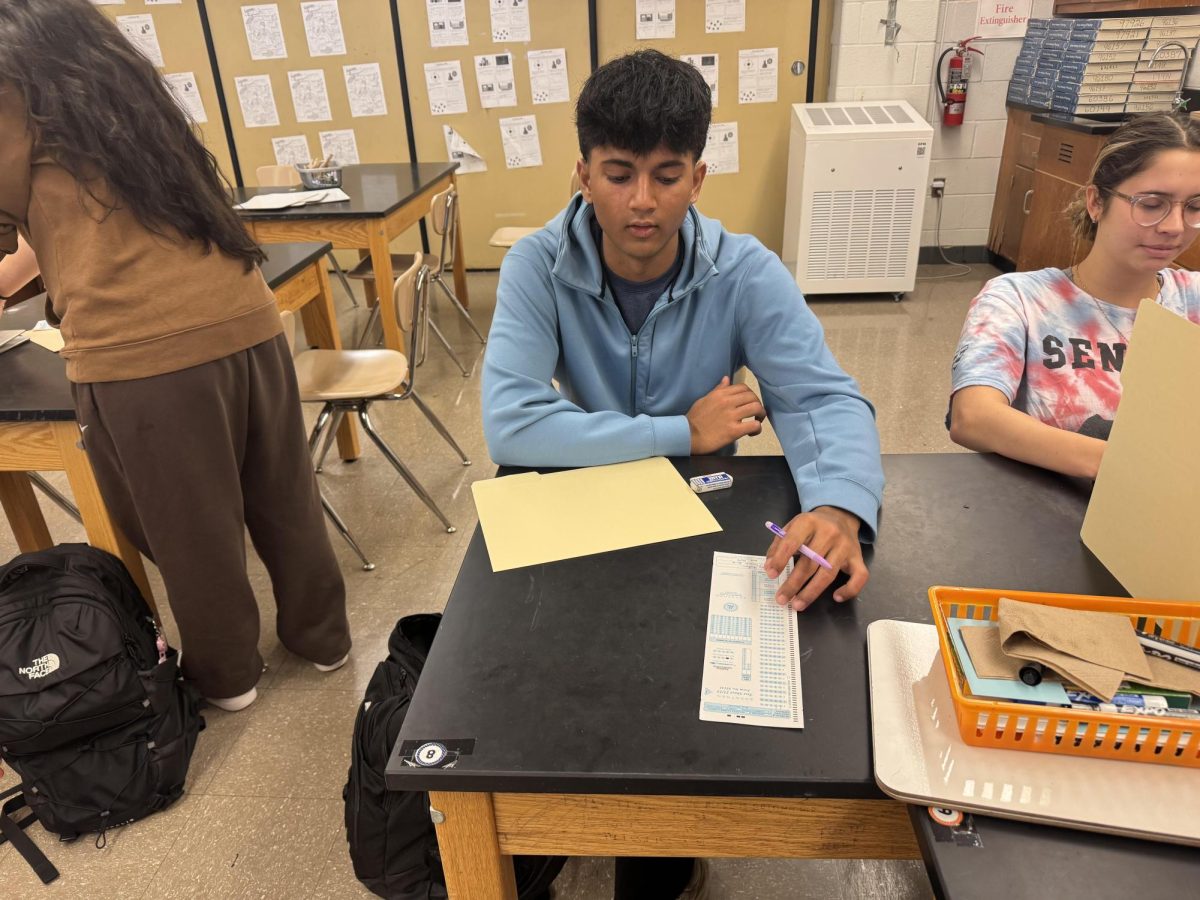Every year, a new cycle of juniors and seniors give themselves painful headaches studying countless hours for both the SAT and ACT, two notoriously difficult standardized tests that have, over time, become an integral part in the college admissions process.
In recent years, however, a word has grown in popularity: test-optional. Being a test-optional college or university means that students make their own decision on whether or not to submit their test scores. For example, if a student is confident in their extracurricular activities and GPA while they lack confidence in their test scores, they may see it as a disadvantage to submit them. Junior Alex Foster, who took the SAT, said, “I think that a test-optional option is a good resource to have when applying for college because test scores don’t always correlate to the student someone is.”
During the COVID-19 pandemic in 2020, the college admissions process was transformed; after requiring test scores for years, several top colleges and universities made a transition to test-optional admissions. Big names like Harvard University, Duke University, Stanford University and the University of Pennsylvania were all test-optional in the 2020-2021 admissions cycle. According to urban.org, from 2020-2021, the number of test-optional schools nearly doubled, compensating for the issues brought on by the pandemic.
After the pandemic’s end, some schools started to transition back to requiring tests, specifically the Ivy League universities. Dartmouth College, Yale University, Brown University and Harvard University have all mandated standardized testing for the 2024-2025 admissions cycle, moving away from their previous test-optional decisions. Junior Isabel Leibowitz, who also took the SAT, said, “I think colleges should stick with test optional because it gives a lot of students more opportunities.”
Many colleges, however, are sticking with their decisions. For the 2023-2024 admissions cycle, more than 1,900 schools went test-optional, including top universities like Vanderbilt University, Northwestern University and the University of North Carolina at Chapel Hill. For some students, this is a relief. Leibowitz said, “I think colleges should stick with test optional because it gives a lot of students more opportunities.”
Students have differing opinions on how accurately standardized testing reflects a student’s intelligence. Leibowitz said, “I don’t think standardized tests accurately reflect students’ intelligence because they are all about having access to resources and tutoring; some people can’t afford to buy test books or have a tutor that could help them do well on the test.” Foster said, “I think extracurriculars and GPA are most important.”
Some students share alternative perspectives on metrics in the college admissions process. Lee said, “I don’t believe there should be just one metric that is the most important, but if I were to choose one it would be the essay. It focuses on who you are as a person and excludes any unfairness that academics would bring.”
College and Career Information Coordinator Jennifer MacDonald said, “I would say that the most important metric is grades. The reason that I think grades are more important than test scores is because the University of California system has been test-blind for over ten years and they still get record numbers of applicants and still select from the best of the best.”








